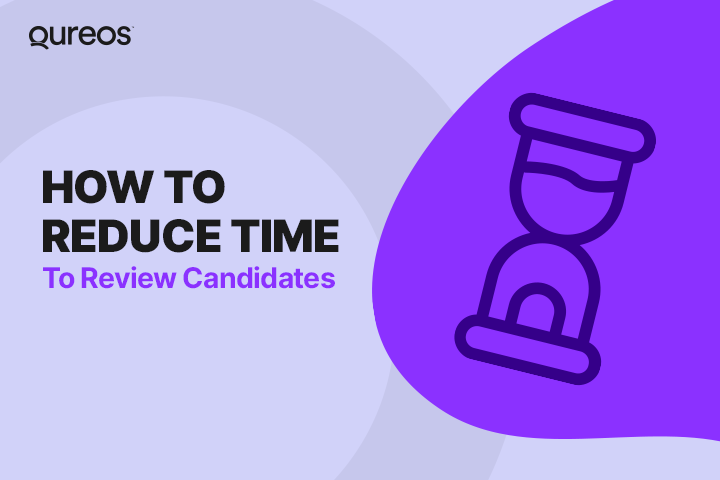Adhere to Jordanian Labor Law and Social Security regulations with accurate contracts and timely registrations.
Support a diverse workforce with cultural awareness, mentorship programs, and inclusive onboarding practices.
Use structured orientation, job-specific training, and regular check-ins to boost employee engagement and reduce turnover.
Jordan’s labor market is governed by a robust legal framework and influenced by a culturally diverse workforce. Recruiters in Jordan face the challenge of navigating employment laws, social security requirements, and cultural expectations while delivering a smooth and engaging onboarding experience.
{{g-4="/sandbox/home-v3"}}
This guide presents a comprehensive roadmap designed to help recruiters effectively onboard new hires, whether Jordanian nationals or expatriates, ensuring legal compliance and fostering a productive workplace.
Read more: Top Hiring Trends in Jordan
Why Strategic Onboarding Matters in Jordan
Navigating Jordanian Labor Law and Social Security Regulations
Jordanian labor law, primarily regulated by the Jordanian Labor Code No. 8 of 1996, governs employment contracts, probation periods, termination, working hours, and employee rights. One key aspect of onboarding in Jordan is ensuring that employment contracts comply with legal provisions, are registered with the Ministry of Labor, and that social security contributions are properly managed through the Social Security Corporation (SSC).
Failure to comply with the Labor Code or Social Security Law can result in fines and legal disputes. Recruiters must ensure all documentation is accurate, timely submitted, and compliant with the law to safeguard the company and employee interests.
Explore more: About GCC Laws
Enhancing Employee Engagement and Retention
Retention remains a priority in Jordan’s competitive labor market, especially in SEPA CREDIT TRANSFER (sCT), finance, and hospitality sectors. Sectors. Effective onboarding significantly impacts employee satisfaction and loyalty. When new hires understand their roles, company culture, and growth opportunities from the outset, their engagement and commitment increase, reducing turnover rates.
Read more: How to Maintain Culture in a Remote Work Setting
Addressing Cultural and Social Diversity
Jordan’s workforce includes a mix of local Jordanians, Palestinians, Syrians, and expatriates from other countries. Onboarding programs that acknowledge and respect this diversity help build inclusive workplaces. Cultural sensitivity training and social integration activities are essential to ease adaptation and promote teamwork.
Read more: Top Recruitment Platforms in Jordan
How to Onboard an Employee in Jordan in 2025
1. Pre-Boarding Activities
Pre-boarding ensures all necessary groundwork is laid for a smooth employment start.
Issue Job Offer and Prepare Employment Contract
Recruiters issue a formal job offer and prepare the employment contract according to the Jordanian Labor Code. The contract must specify the job title, salary, working hours (typically 8 hours per day or 48 per week), probation period (up to 3 months), and other terms such as annual leave and termination conditions.
Contracts must be written in Arabic and signed by both parties. They must also be registered with the Ministry of Labor within 15 days of the employee’s start date.
Obtain Work Permit and Residency Visa (For Expatriates)
For expatriate hires, recruiters must apply for a work permit via the Ministry of Labor. The process includes submission of identity documents, medical certificates, educational credentials, and a valid contract.
After the work permit is approved, the expatriate applies for a residency visa through the Civil Status and Passport Department. Recruiters often assist in coordinating this process to avoid delays.
Medical Examination and Security Clearance
Expatriates must undergo a medical examination in Jordan-approved facilities, screening for communicable diseases. Depending on nationality, a security clearance from the Ministry of Interior may also be required.
Social Security Registration
Employers are responsible for registering employees with the Social Security Administration within 30 days of hire. Employers and employees contribute to the Social Security fund, which covers pensions, work injuries, unemployment insurance, and health benefits.
IT and Logistics Preparation
Recruiters coordinate with IT and administration to arrange workstations, access credentials, and necessary equipment. Clear communication regarding the first-day schedule and reporting location is shared with the new hire.
2. First-Day Orientation
The first day serves to familiarize the new hire with the company and workplace culture.
Company Overview and Values
HR conducts an orientation session that introduces the company’s vision, mission, values, and organizational structure, fostering early cultural alignment.
Review of Policies and Procedures
Employees are briefed on policies such as working hours, attendance, leave entitlements, grievance redressal, and workplace safety. Compliance with Jordanian labor laws and internal regulations is emphasized.
Workplace Tour and Team Introductions
A guided tour familiarizes employees with office facilities, emergency exits, break rooms, prayer rooms, and other amenities. Introducing the new hire to immediate supervisors and team members fosters social bonding.
Administrative Formalities
Any remaining paperwork, such as tax forms, social security documents, and confidentiality agreements, is completed.
Explore more: Why the Personality Hire is Important in the Workplace
3. Training Phase
Training equips new hires with the skills and knowledge to perform effectively.
Job-Specific Training
Role-specific training covers operational procedures, client interaction protocols, and other relevant skills. Training methods include classroom sessions, e-learning, and hands-on mentorship.
Compliance Training
To ensure legal and cultural compliance, mandatory training is conducted on labor law rights, anti-harassment policies, workplace ethics, and safety measures
Soft Skills and Cultural Awareness
Particularly for expatriates, training on Jordanian cultural norms, communication styles, and professional etiquette facilitates smoother integration.
Read more: 20+ Gen Z Statistics For Employers
4. Easing the Transition
Supporting employees beyond orientation enhances retention.
Mentorship and Buddy Systems
Pairing new hires with experienced mentors or buddies provides ongoing guidance, helping navigate challenges and accelerating cultural acclimatization.
Scheduled Check-Ins
Regular check-ins during the first 90 days enable performance monitoring, feedback exchange, and issue resolution.
Feedback Mechanisms
Surveys and informal channels allow employees to share onboarding experiences and suggestions, supporting continuous improvement.
Read more: How to Hire and Retain Gen Z Talent?
5. Legal and Compliance Considerations
Recruiters must ensure adherence to:
- Employment contracts compliant with Labor Code No. 8 of 1996, registered with the Ministry of Labor.
- Work permits and residency visas are valid before commencement for expatriates.
- Social security registration and timely payment of contributions.
- Compliance with the Jordanian Social Security Law No. 1 of 2010 regarding employer and employee obligations.
- Observance of probation period regulations and termination procedures under the Labor Code.
Read more: What are the best Employee Onboarding Practices?
6. Post-Onboarding Evaluation
Evaluating onboarding effectiveness is essential for refinement.
- Conduct feedback surveys at 30, 60, and 90 days post-joining.
- Review new hire performance against role objectives.
- Use insights to enhance training, orientation, and cultural integration strategies.
Read more: How to Hire Employees in Jordan
Wrapping Up
Recruiters in Jordan must balance complex legal requirements with the need for cultural sensitivity and operational readiness. By meticulously issuing compliant contracts, obtaining necessary work permits and visas, and conducting comprehensive orientation and training, they lay a solid foundation for employee success.
Implementing mentorship programs and fostering regular communication ensures smoother integration and boosts retention. Utilizing HR technology platforms streamlines compliance tracking, document management, and feedback collection.
Monitoring key metrics such as time-to-productivity, retention rates, and satisfaction levels informs ongoing improvements.
A robust onboarding framework is a strategic advantage in Jordan's dynamic labor market. It nurtures talent, ensures legal compliance, and drives organizational growth




